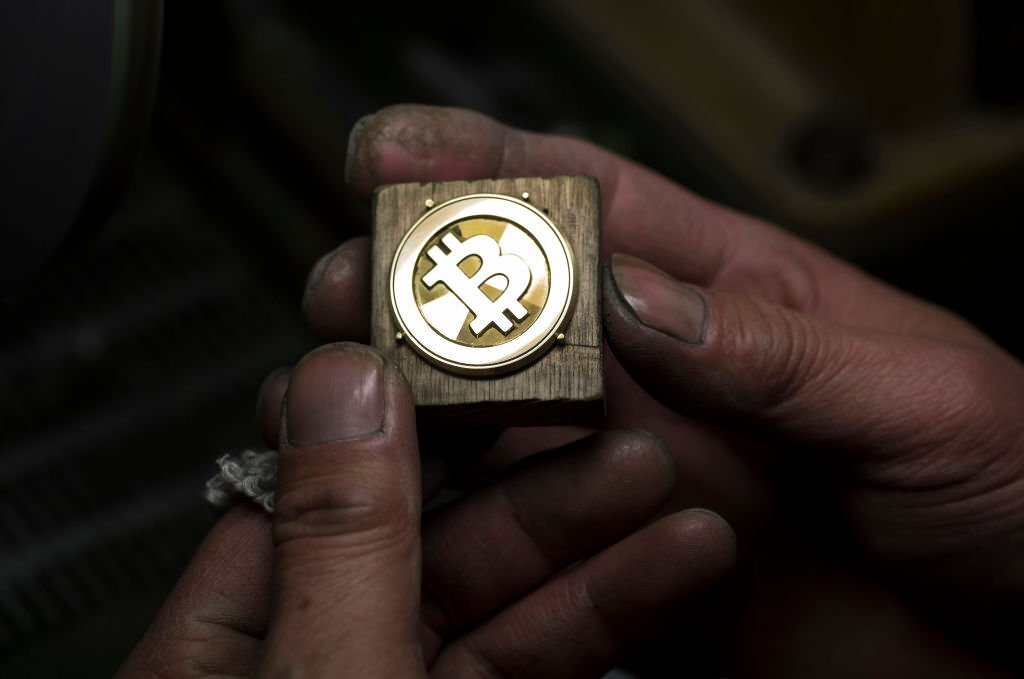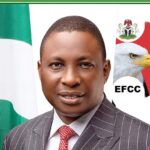
My eyes welled up as I listened to the judgment delivered by the Supreme Court in the appeal filed by distinguished Senator Peter Onyelukachukwu Nwaoboshi (SPON) against his conviction by the Court of Appeal on trumped up charges of money laundering and fraud.
Why? Two reasons. Firstly, thoughts of the injustice that the appelant had been through and what he suffered as a consequence. Secondly, for the rape of our country through impunity and wanton abuse of power and privileges. For ages, I have been crying for this country; when will I stop? Perhaps now that we have #RenewedHope.
Let’s look briefly at the facts of the case and what the Supreme Court judges had to say.
Senator Nwaoboshi was said in this matter to have acquired Guinea House in Apapa, Lagos, for the sum of N805m. The EFCC said he reasonably ought to have known that N322m out of the purchase sum formed part of the proceeds of an unlawful act. The sum of N322m had been transferred to the vendor of the property by order of Suiming Electricals Limited on behalf of SPON and Golden Touch. The prosecution claimed that this was an offence contrary to sections 15(2)(d) and 18(a) of the Money Laundering (Prohibition) Act, 2011 (as amended). The Senator and his firms, Golden Touch Construction Project Ltd and Suiming Electrical Ltd, were prosecuted for money laundering and fraud.
For clarity, this is what those sections of the law say.
Section 15(2)(d): Any person or body corporate, in or outside Nigeria, who directly or indirectly acquires, uses, retains or takes possession or control of any fund or property, knowingly or reasonably ought to have known that such fund or property is, or forms part of, the proceeds of an unlawful act commits an offence of money laundering.
Section 18(a): A person who conspires with, aids, abets or counsels any other person to commit an offence under this Act, commits an offence and is liable on conviction to the same punishment as is prescribed for that offence under this Act.
Soon after the trial began in Lagos, the judge, Justice Mohammed Idris, was elevated to the Court of Appeal. The President of the Court of Appeal, Justice Zainab Bulkachuwa, gave authorisation for Justice Idris conclude the case before resuming at the appellate court, and Justice Idris promised to hear the case on a daily basis until it was concluded but the EFCC, despite having called two witnesses, declined the offer, and opted for the case to start afresh before a new judge. This was a reversal of the usual situation where it is politicians, rather than prosecutors, who seek to stall proceedings.
Subsequently, the case was heard by Justice Chukwujekwu Aneke of the Federal High Court in Lagos.
In June 2021, he ruled that the prosecution had failed to prove its case and discharged Senator Nwaoboshi.
Dissatisfied, the EFCC filed an appeal. On June 2022, the Court of Appeal in Lagos upheld the appeal, sentenced SPON to seven years imprisonment for money laundering, and ordered the two companies to be wound up.
Senator Nwaoboshi proceeded to the Supreme Court. The elections into the National Assembly were at hand, but efforts to obtain bail or have the case disposed of before the elections were unsuccessful. The All Progressives Congress (APC) had to proceed to the election in the absence of its candidate for Delta North Senatorial District.
Justice was finally served on Friday, 7 July 2023, when the Supreme Court gave judgment. The Court held that Senator Nwaoboshi and his two companies, Golden Touch Construction Project Ltd and Suiming Electrical Limited, were unjustly and maliciously prosecuted by the EFCC. It upheld the appeal, set aside the judgment of the Court of Appeal, and ordered the release of Senator Nwaoboshi.
Justices John Okoro, Uwani Aba-Aji and Adamu Jauro agreed with the lead judgment, written by Justice Emmanuel Agim, while Justice Ibrahim Saulawa dissented.
So, how did the Court arrive at this decision? There were a number of reasons.
Firstly, it was established that Nwaoboshi’s company legitimately obtained a loan from Nexim Bank. It was from this loan that the payment of N322m was made in respect of the property purchased. The money could not, therefore, be rightly or sensibly described as the proceed of crime. Further, the loan was subsequently repaid, along with interest on the loan. The court stressed the obvious: that disputes pertaining to loans were the subject of civil litigation and not criminal prosecution, so the EFCC had no business prosecuting Nwaoboshi and the companies. In any case, NEXIM Bank had not lodged any complaint in respect of the loan.
At this point, it is worth emphasising that the EFCC’s two charges against Nwaoboshi and his companies pertained to the sum of N322m which it claimed ‘is, or forms part of the proceeds of an unlawful act’.
At the Court of Appeal, however, they were found guilty of diverting the loan money from an initial intention to a different purpose, the purchase of Guinea House.
In other words, the Court of Appeal convicted Senator Nwaoboshi and the companies of an offence (diversion of fund) for which they were not tried at the lower court. Upbraiding the Court of Appeal on this, the Supreme Court explained that if a man obtains a loan for establishment of a farm but decides to use part of it to marry a wife, he has not committed any known crime.The Court expained that once a loan has been transferred to a loanee, the money becomes the property of the loanee; he becomes a debtor but he, and not the bank, is the owner of the money, and he can legally do whatever he wishes with the money. So, any claim of fraudulent conversion in this regard cannot stand.The arrest, prosecution and conviction of Senator Nwaoboshi in the absence of any crime was against the spirit and letter of the Constitution of the Federal Republic of Nigeria.
Having explained the reasons for its decision, the Court expressed its displeasure with the EFCC in strong terms. It expressed its disappointment that the EFCC, which had a large body of senior and junior lawyers in its employment and is supported by a battery of Senior Advocates, could bring this case to court; it was an abuse of process. The Court noted that the initial petition to the EFCC which triggered this prosecution contained 20 allegations, only one of which the EFCC found worthy of pursuing. It was clear, the Court said, that the petitioner had an axe to grind. It advised the EFCC not to allow itself to be used by unscrupulous elements to pursue personal vendetta.
Addressing the Court after judgment had been read, Kanu Agabi SAN thanked the Court for fair dispensation of justice but lamented the use of the judicial process to oppress the innocent. Senator Nwaoboshi, he said, was able to get justice because he could afford to reach the apex court; imagine what would have been the plight of the innocent Nigerian who could not afford to get as far as the Supreme Court.
On my part, I call on His Excellency, President Bola Ahmed Tinubu to take notice of the Supreme Court’s comments in this case in his plans for reforming and repositioning the EFCC. This is not the first time that the EFCC has been criticised by the judiciary. In 2021, the Court of Appeal in Abuja accused the EFCC of gross abuse of statutory powers and abusing the fundamental rights of a citizen in an “oppressive, repressive and condemnable” manner. On various occasions over the years since its inception, the EFCC has been urged by human rights groups and politicians to resist being used as a tool of political oppression.
This is yet another example of the extensive impunity that has plagued this country and rendered our institutions so weak. For so long, we have focused on ‘corruption’ but made little or no progress. Shifting the focus to impunity may yield better results.
It is possible to the discerning observer of the Nwaoboshi case that the EFCC might have been used to settle political scores, the aim being to get the Senator out of circulation, to pave way for the perpetrators’. May this be the last time that this will be allowed to happen in our legal system.
‘Politricians’ may continue to play dirty tricks, but the law must steer clear of mud.
Professor Edozien, Ubili Ka Nkwu Ahaba, doctor, lawyer, Chairman, Senator Peter Nwaoboshi Campaign Council (SPONCO).













